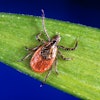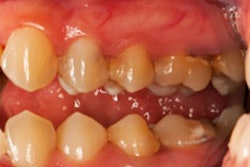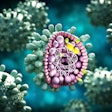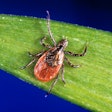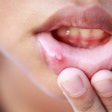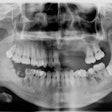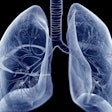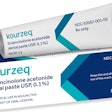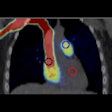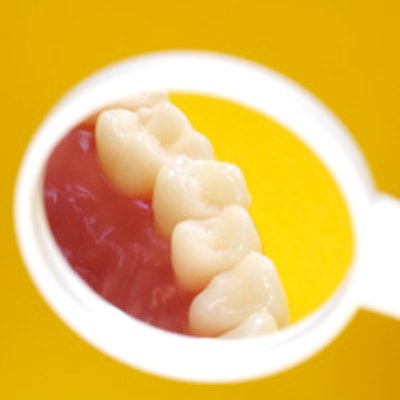
Periodontal disease could be effectively treated by beckoning the right kind of immune system cells to the inflamed tissues, according to a new animal study by U.S. and Brazilian researchers published October 28 in Proceedings of the National Academy of Sciences.
Periodontal disease currently is treated by keeping oral bacteria in check with daily brushing and flossing, as well as regular scaling and root planing, which remove tartar above and below the gumline. In some hard-to-treat cases, antibiotics are given.
These strategies aim to reduce the amount of oral bacteria on the tooth surface, explained study co-author Charles Sfeir, DDS, PhD, the director of the Center for Craniofacial Regeneration and an associate professor in the departments of periodontics and oral biology at the University of Pittsburgh School of Dental Medicine.
But these strategies don't address the real cause of the problem, which is an overreaction of the immune system that causes an aggressive response to oral bacteria, according to the researchers.
In a healthy mouth, bacteria and the immune system response are balanced to prevent infection without generating inflammation. But with periodontal disease, a chronic overload of bacteria activates the immune system, causing harm to the oral tissues while it attempts to eradicate germs.
Research now shows these tissues are deficient in a subset of immune cells called regulatory T-cells, which stop the immune cells' inflammatory response. In the current study, the researchers wanted to find out what would happen if the regulatory T-cells returned to the gums.
To do so, the researchers developed a system of polymer microspheres to slowly release a chemokine, or signaling protein, called CCL22 that attracts regulatory T-cells, and placed tiny amounts of the paste-like agent between the gums and teeth of animals with periodontal disease.
The team found that although the amount of bacteria was unchanged, the treatment led to improvements of standard measures of periodontal disease, including decreased pocket depth and gum bleeding, signs of reduced inflammation as a result of increased regulatory T-cells. In addition, microCT scanning showed lower rates of bone loss.
This homing beacon for regulatory T-cells, combined with professional cleaning, could offer a new way of preventing the serious effects of periodontal disease by correcting the underlying immune imbalance of the condition, according to the researchers.
Next steps include developing the immune modulation strategy for human trials.
The project was funded by U.S. National Institutes of Health grants, the Wallace H. Coulter Foundation, the Camille and Henry Dreyfus Foundation, the Arnold and Mabel Beckman Foundation, and the Commonwealth of Pennsylvania.


